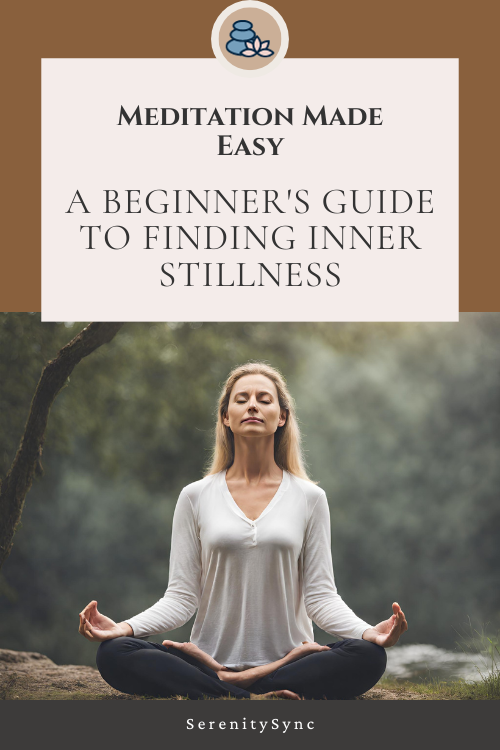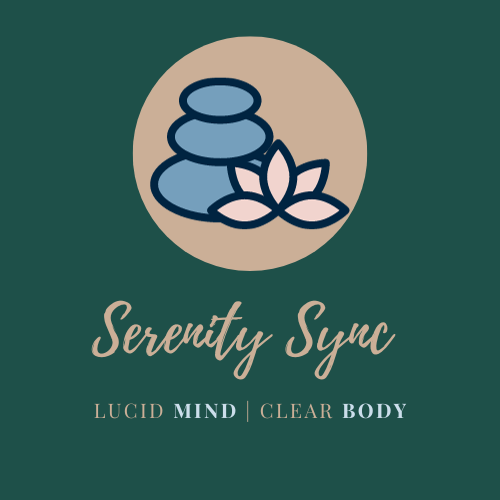In Brief
Meditation is a powerful practice that can help you find inner stillness and peace amidst the chaos of daily life. In this beginner’s guide, we will explore the benefits of it, different techniques to try, and tips for establishing a regular practice. Whether you’re new to it or have dabbled in it before, this guide will provide you with the tools and knowledge to embark on your own meditation journey and experience the profound effects it can have on your overall well-being.

Benefits of Meditation
Meditation offers a wide range of benefits for both the mind and body. Here are three key benefits:
-
Reduced stress and anxiety
It helps calm the mind and relax the body, reducing stress and anxiety levels. By focusing on the present moment and letting go of worries, you can cultivate a sense of inner peace and tranquility.
-
Improved focus and concentration
Regular meditation practice can enhance your ability to concentrate and stay focused. By training your mind to stay present and avoid distractions, you can improve your productivity and performance in various areas of life.
-
Enhanced emotional well-being
It can help you develop a greater sense of self-awareness and emotional resilience. By observing your thoughts and emotions without judgment, you can gain insight into your inner world and cultivate a more positive and compassionate mindset.
Fun Fact:
Did you know that meditation has been practiced for thousands of years? It originated in ancient India and has since spread to various cultures around the world.
Types of Meditation Techniques
There are many different techniques to choose from. Here are three popular ones:
-
Mindfulness meditation
This technique involves focusing your attention on the present moment, observing your thoughts and sensations without judgment. It helps cultivate a state of mindfulness and can be practiced anywhere, anytime.
-
Guided visualization
In this technique, you use your imagination to create vivid mental images that promote relaxation and well-being. It is often accompanied by soothing music or a recorded narration to guide you through the visualization process.
-
Mantra meditation
This involves repeating a word or phrase, known as a mantra, to focus your mind and induce a state of deep relaxation. The mantra can be silently repeated or chanted out loud.
Fun Fact:
Did you know that some famous celebrities, such as Oprah Winfrey and Hugh Jackman, are avid meditation practitioners? It goes to show that meditation is for everyone, regardless of their status or profession.
Establishing a Meditation Practice
Building a regular practice takes time and commitment. Here are three tips to help you get started:
-
Start small
Begin with just a few minutes each day and gradually increase the duration as you become more comfortable. Consistency is key, so aim for daily practice, even if it’s just for a short period.
-
Create a peaceful environment
Find a quiet and comfortable space where you can meditate without distractions. You can enhance the ambiance by lighting candles, playing soft music, or using essential oils.
-
Be patient and gentle with yourself
Don’t expect instant results or judge yourself for having a busy mind. Meditation is a skill that takes time to develop. Embrace the journey and be kind to yourself along the way.
Fun Fact:
Did you know that meditating for just 10 minutes a day can make a significant difference in your overall well-being? So, even if you’re short on time, you can still reap the benefits of meditation.
Overcoming Common Challenges
It can be challenging at times, but with perseverance, you can overcome these obstacles. Here are three common challenges and how to address them:
-
Racing thoughts
If your mind is constantly racing, try focusing on your breath or using a guided meditation app to provide structure and guidance. Remember, it’s normal for thoughts to arise during its practice; the key is to gently bring your focus back to your chosen point of attention.
-
Restlessness
If you find it difficult to sit still, explore other forms of meditation like walking or moving meditations. These practices involve mindful movement, allowing you to find stillness in motion.
-
Inconsistent practice
If you struggle with maintaining a regular meditation routine, try incorporating it into your daily schedule, such as right after waking up or before bedtime. You can also join a meditation group or seek accountability from a friend.
Fun Fact:
Did you know that meditation is not just about sitting in silence? There are various forms of meditation, including dynamic meditations that involve movement, breathwork, or chanting.
Conclusion
Meditation is a transformative practice that can help you cultivate inner stillness, reduce stress, and enhance your overall well-being. By incorporating different meditation techniques into your daily life and overcoming common challenges, you can experience the profound benefits of this ancient practice. So, take a deep breath, find a quiet space, and embark on your meditation journey today. Remember, finding inner stillness is just a breath away!


10 thoughts on “Meditation Made Easy: A Beginner’s Guide to Finding Inner Stillness”